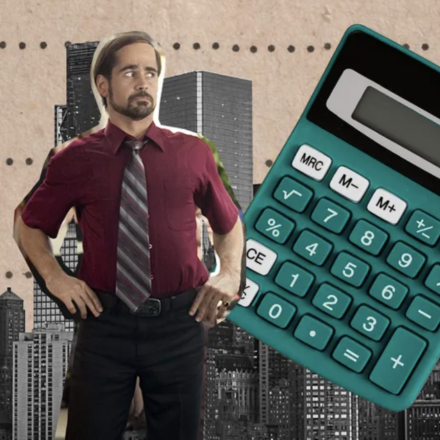For many of us, money isn't just a tool for achieving goals; it can also be a source of stress. It's hard to imagine someone taking genuine pleasure in paying their mortgage or dealing with taxes. But if financial tasks constantly stress you out and you tend to put them off until the last minute, you might be suffering from financial procrastination.
What is Financial Procrastination?
Financial procrastination is the act of delaying important financial tasks, whether it's checking your bank balance, paying utility bills, or filing your tax return. If you often avoid these tasks or feel a sense of dread when thinking about your financial responsibilities, it's a clear sign that you're in this cycle.
Our relationship with money can be complex. It's not always about whether we are good with finances or not. Financial anxiety, a scarcity mindset, feeling overwhelmed by financial obligations, or a lack of confidence in managing personal finances can all lead us to avoid dealing with money matters. Before you know it, you're pushing off the task that should have been taken care of long ago.
Why is it a Problem?
Financial procrastination can lead to several negative outcomes. For example, you might face penalties for missed payments or end up with a poor credit history. Failing to save and invest can also result in missed opportunities for financial growth. Instead of building your wealth, you're scrambling to deal with urgent financial issues, leaving little room for long-term planning.
Additionally, when you're constantly anxious about money, you're more likely to make poor financial decisions. You avoid dealing with issues as soon as they arise, and before you know it, you're losing money. But perhaps the worst part of all is that financial procrastination can rob you of hope for a more stable financial future.
How to Recognize Financial Procrastination?
To determine whether you're struggling with this issue, ask yourself a few questions:
-
How often do you delay checking your bank balance?
-
Do you miss payment deadlines for utilities or taxes?
-
Do you avoid making difficult financial decisions, even when they're clearly necessary?
If you find yourself answering "yes" to most of these questions, it's time to take a closer look at your financial habits.
How to Overcome Financial Procrastination?
Start Small
Don't try to change everything all at once. Start with one or two small financial tasks you've been putting off. This might be checking your account balance, paying a bill, or creating a basic budget. By addressing these tasks, you'll begin to feel more in control and confident in your ability to handle finances.
Avoid criticizing yourself for past mistakes. Focus on solving current problems. Even small victories will help you build confidence and establish healthy financial habits.
Create a Plan
Planning is the key to overcoming procrastination. Break down big goals into smaller, actionable steps. For example, set aside small amounts of money each month so you're not scrambling to come up with a large sum when bills come due. Use budgeting apps to track your finances and keep your spending in check.
Try a simple rule: 50/30/20. Spend 50% of your income on necessities, 30% on wants, and save or invest the remaining 20%. If that doesn't work for you, find your own system or create one that fits your lifestyle.
Change Your Relationship with Money
The problem isn’t always about how we handle money—it’s often about how we feel about it. If finances cause you anxiety or fear, it’s important to address those emotions. Consider seeking advice from a financial advisor or talking to a trusted friend who understands finances. If emotional or behavioral barriers are holding you back, it might be helpful to consult with a psychologist.
Be Patient
Changing habits takes time. Don’t expect everything to fall into place right away. You might face setbacks before things start to stabilize. The key is to take small steps that help build confidence in your ability to manage your finances. Each success, no matter how small, will motivate you to keep moving forward.
Financial procrastination isn’t a permanent problem—it's a temporary obstacle that can be overcome. By taking small steps, creating a clear plan, and changing your relationship with money, you can break free from this habit and lay the foundation for a stable financial future. The most important thing is to keep moving forward and trust that with each step, you're getting closer to your goal.


















